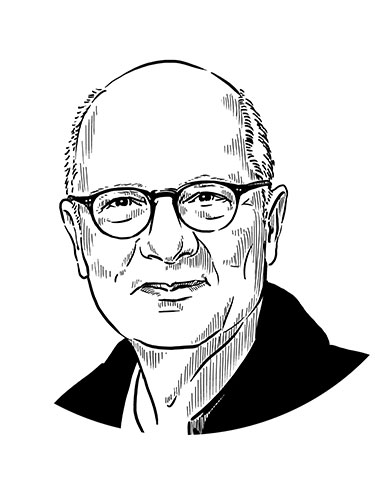What does neutrality mean for Switzerland, Georg Kreis?
Text: Georg Kreis
From participation in international alliances to its stance on the war in Ukraine – Swiss neutrality is in a constant state of renegotiation within Switzerland. A historian and a political scientist reflect on how the role of Switzerland in the international community has developed over time and how it is defined today.
If we look at history, we see that there is no fixed interpretation of Swiss neutrality and that its implementation is always situation specific. We should therefore really speak about “neutralities”, in the plural. While neutrality is always there as a basic principle, in practice it is observed in different ways. What is generally said – and written – about neutrality tends to follow the same patterns, but the intensity of debate on the issue fluctuates over time. The annual ETH surveys on neutrality, which show consistently high levels of support for the policy, demonstrate that neutrality is a key element of the collective Swiss sense of identity, but what is meant by it remains an open question. However, the solution is not to codify an interpretation that meets our main needs at present by redefining neutrality in more precise terms as “active”, “co-operative”, “supportive” and so on.
The traditionalist view seeks to locate the origins of Swiss neutrality as far back in the past as possible in order to give it the greatest possible significance. Neutrality first became significant in the 17th century, during the religiously motivated international conflicts of the Thirty Years’ War, which threatened the unity of the religiously mixed Swiss Confederation. Later, too, Switzerland’s theoretically neutral stance in relation to the outside world always had the function of ensuring that no further conflicts arose within the country itself.
The recognition of Swiss neutrality as “in the interests of Europe” by the powers at the Congress of Vienna in 1814–15 was an important milestone in the concept’s subsequent development. For the advocates of neutrality, the fact that Switzerland was not directly affected by the great military conflicts of the 20th century is proof that it has stood the test of time, although during World War II, in particular, there were other reasons for this, such as Switzerland’s usefulness as a financial hub.
In 1920, Switzerland joined the multilateral League of Nations because it was thought to be advantageous. In 1945, joining the League’s successor organization, the United Nations, was seen as contrary to Swiss interests, so Switzerland stayed out for decades. Until 2002, the dominant view was that membership was out of the question because of neutrality. Then, conversely, one of the arguments in support of membership was that neutrality could be defended better inside the UN than outside it.
In about 1945, the historian Edgar Bonjour began work on his acclaimed history of Swiss neutrality. Although he always stressed that neutrality was only a tool rather than an end in itself, his work helped to give such key importance to neutrality that in public opinion it came to be equated with foreign policy as a whole. In the process, it was forgotten that the shaping of foreign relations involves the calculated pursuit of national interests. During the Cold War era, Switzerland had the status of a Western neutral power. Neutrality acquired an exaggerated ideological significance precisely because, in reality, Switzerland was part of a bloc.
Switzerland’s independence and special path – as well as its high level of military spending on national defense – could be justified more easily by appealing to the obligations of neutrality. After the fall of communism in 1989, however, the army command played a leading role in efforts to qualify Swiss neutrality, as it had realized that co-operation with Western powers was necessary to guarantee Switzerland’s security. This was confirmed by the Federal Council with its supplement to Security Report 21 in September 2022.
Georg Kreis is Emeritus Professor of Modern History and the History of Switzerland at the University of Basel and was the founding director of the Institute for European Global Studies. He is the author of numerous publications on Swiss history, Switzerland’s foreign relations and minorities.
Weitere Artikel in der aktuellen Ausgabe von UNI NOVA.

